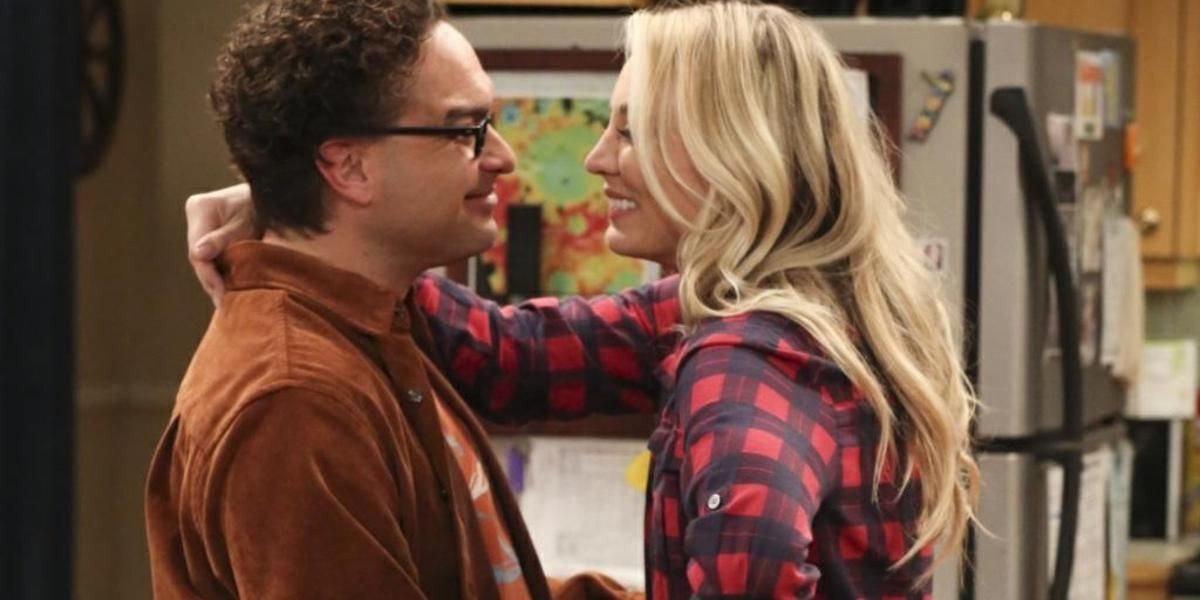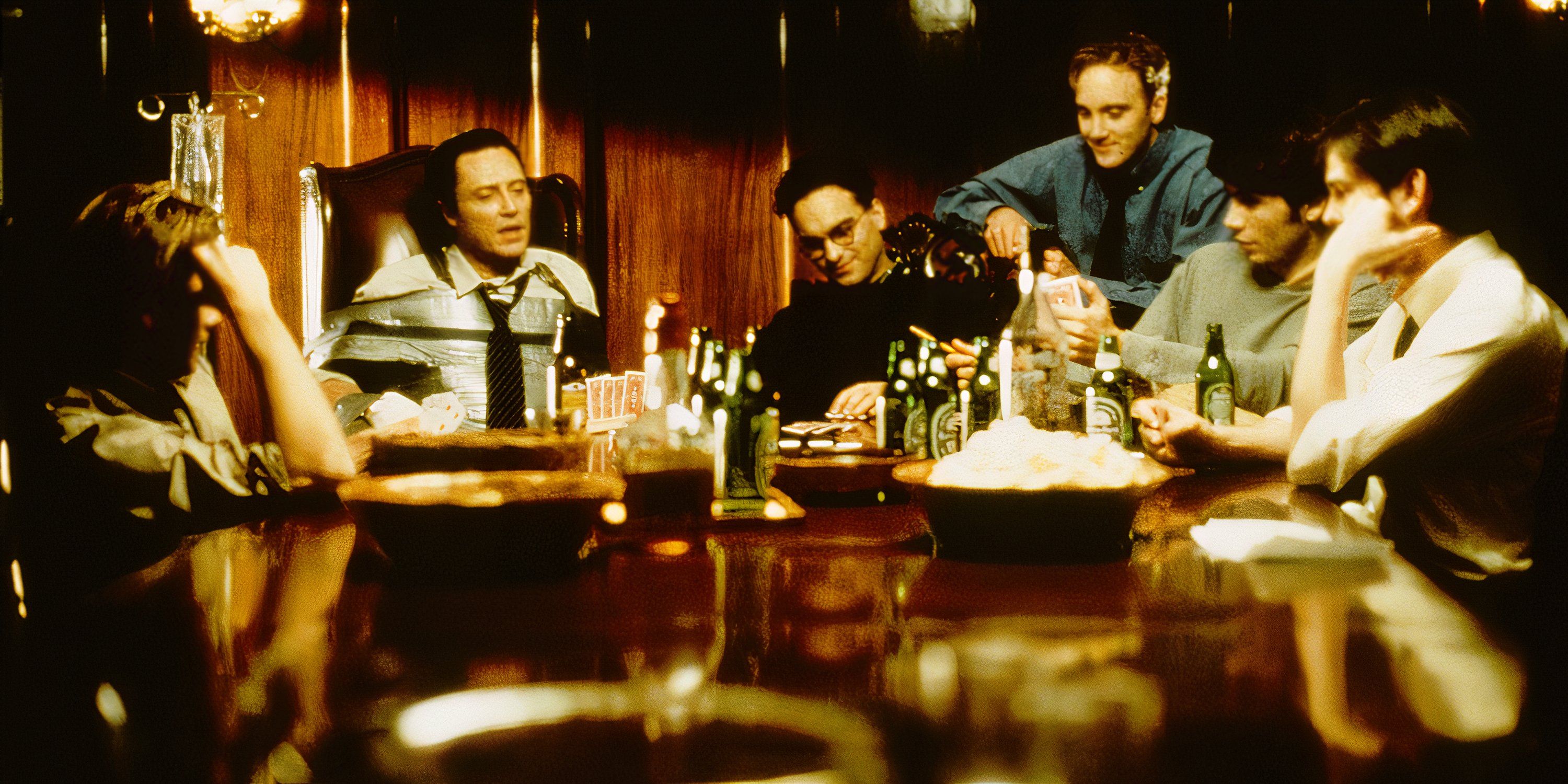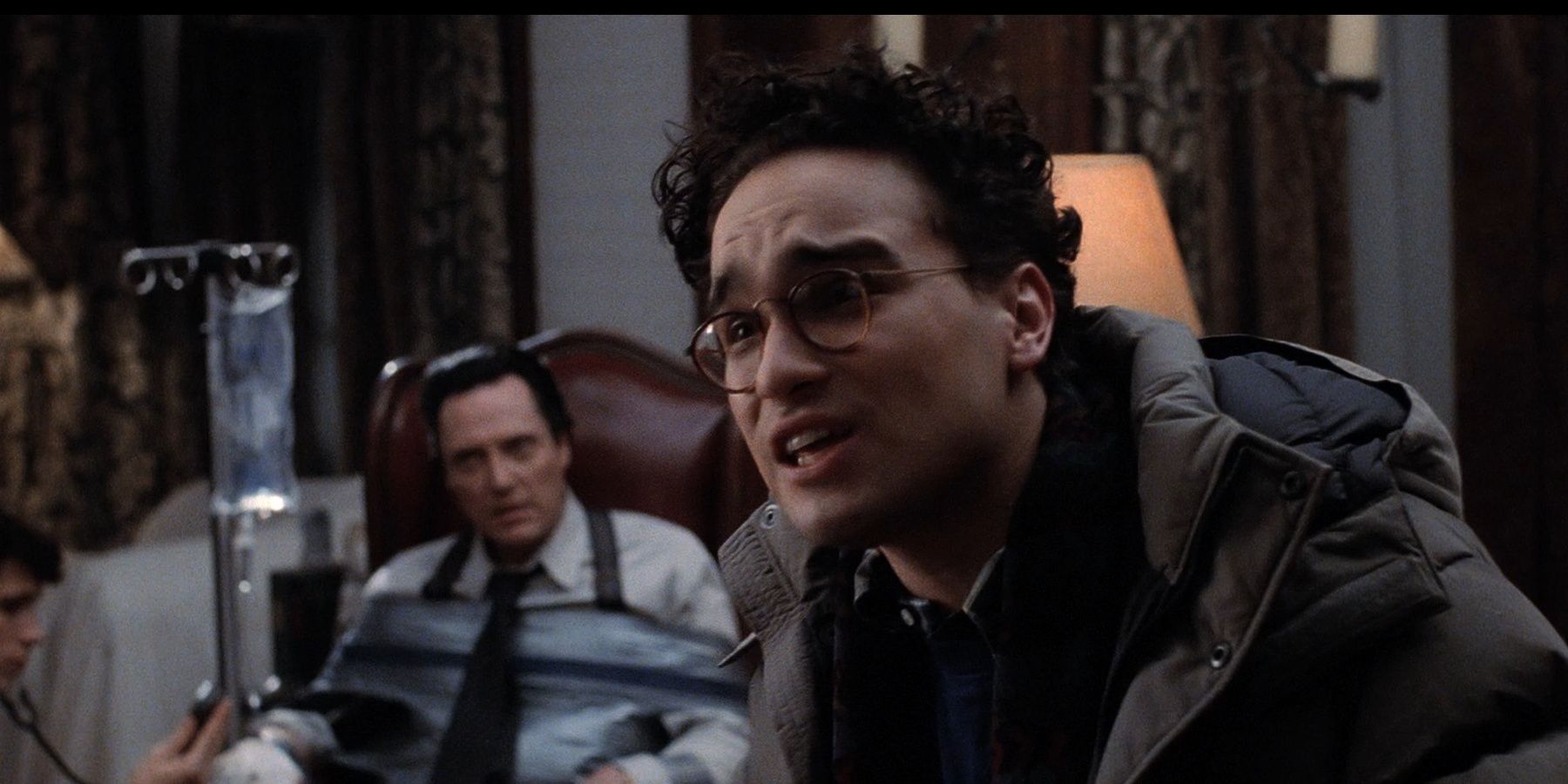
After the success of Quentin Tarantino’s Pulp Fiction, the 1990s experienced a wave of fresh crime stories and black comedies that gave audiences a slew of cult classics. Ranging from the Coen Brothers’ Fargo and Miller’s Crossing to Michael Bay’s hit Bad Boys, the decade was packed full of great movies. In 1997, Christopher Walken joined a Big Bang Theory star in one of the most overlooked indie films of the ’90s.
When directors like Quentin Tarantino, Paul Thomas Anderson, and the Coen Brothers saw their stars rise between the late ’80s and early ’90s, they brought with them a slew of subversive and edgy new films. After the prior decade’s penchant for focusing on safe, family-friendly franchise films, a new generation looked back on the darker style of ’70s cinema for fresh inspiration. Among other things, this allowed for a combination of iconic, genre-defining gangster movies and black comedies, which used gallows humor to illicit chuckles from the audience. Rather than tell zany jokes, these films played on themes of tragedy and crime, juxtaposing them against the mundaneness of life to be oddly relatable or darkly humorous. Among the best of these was an obscure kidnapping tale that featured Christopher Walken opposite a modern sitcom star.
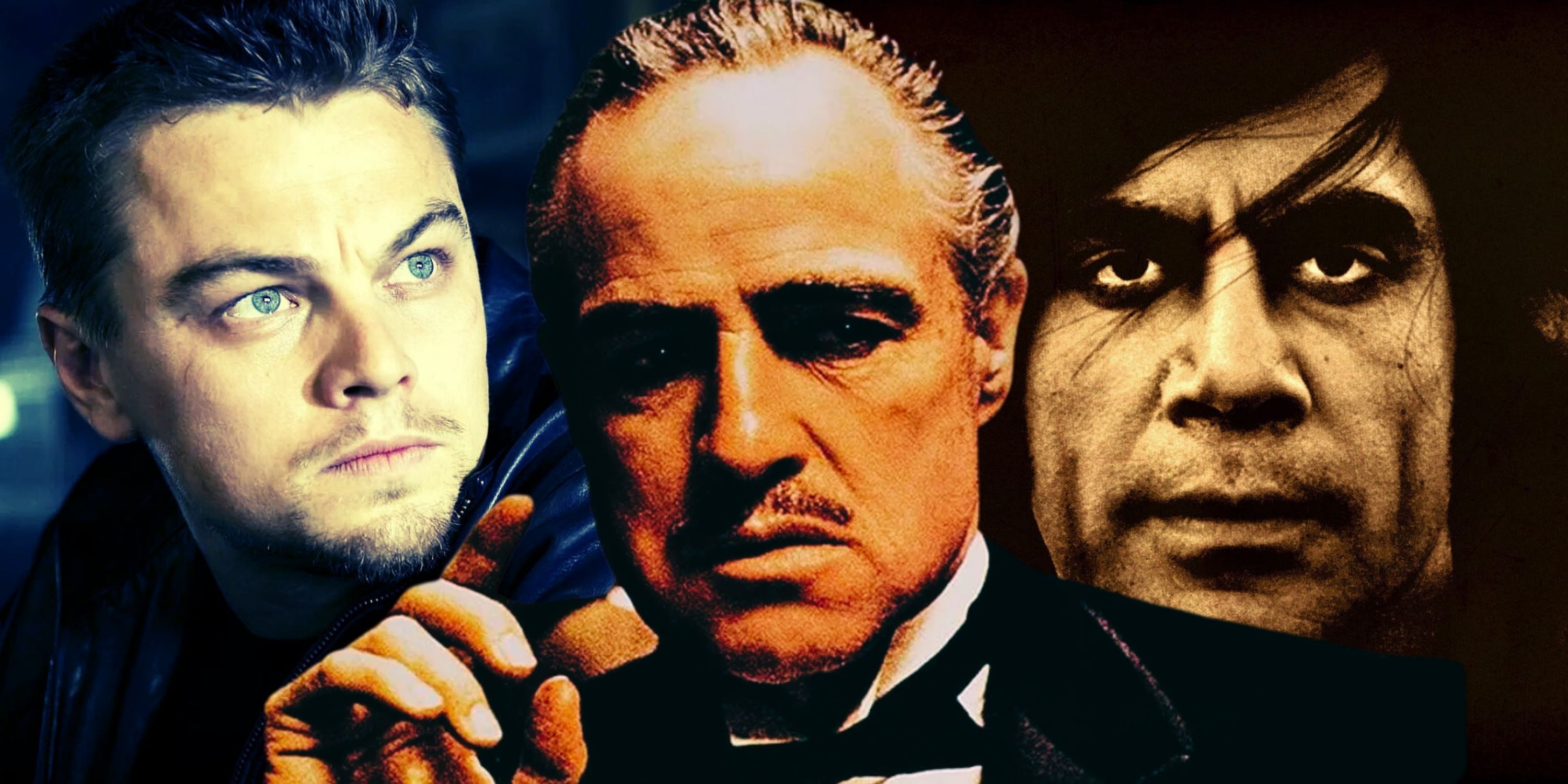
Related
9 Greatest Crime Movies of All Time That Also Won Oscars
From gangster epics to serial killer thrillers, these crime films broke through at the Oscars and earned their place in cinematic history.
How Comedy-Crime Movies Swept The 1990s
Tarantino Set The Tone For A New Crime Genre
|
Funniest Gangster Movies (CBR) |
IMDB Rating |
Streaming/Rent |
|---|---|---|
|
In Bruges |
7.9/10 |
AppleTV, Prime Video and Fandango At Home |
|
Lock, Stock and Two Smoking Barrels |
8.1/10 |
AppleTV, Prime Video, Fandango At Home and Spectrum |
|
Snatch |
8.2/10 |
Paramount+ |
In 1992, Quentin Tarantino released Reservoir Dogs, a crime story set in the aftermath of a bank robbery gone awry, focusing on the thieves as they figure out what went wrong. Of all the ways the writer-director influenced ’90s cinema, his dialogue stood out for the way it humanized even the darkest characters. Packed full of pop culture references, silly arguments, and dark irony, his dialogue soon became the gold standard for crime cinema, and its influence can be seen in anything from Snatch to In Bruges. Whether writers borrowed from the director or were lucky enough to get investment thanks to sharing his style, a slew of projects took off that changed the ’90s and cinema forever. Suddenly, gangsters weren’t just more relatable, they were funny people, and the very business of crime started to feel more humorous.
The goal of these films was to take the standard crime genre and turn it into something that better connected with the audience. Where ’70s mob movies were taken incredibly seriously to the point of being almost humorless, the only other crime movies of the time were told from the perspective of law enforcement. After films like Lethal Weapon infused comedy into the crime genre, the ’90s flipped the script, casting criminals and gangsters as the protagonists and, quite often, the most likable characters. This worked especially well in dark comedies, whose irony could draw out guilty laughter from the audience over even the darkest subject matter.
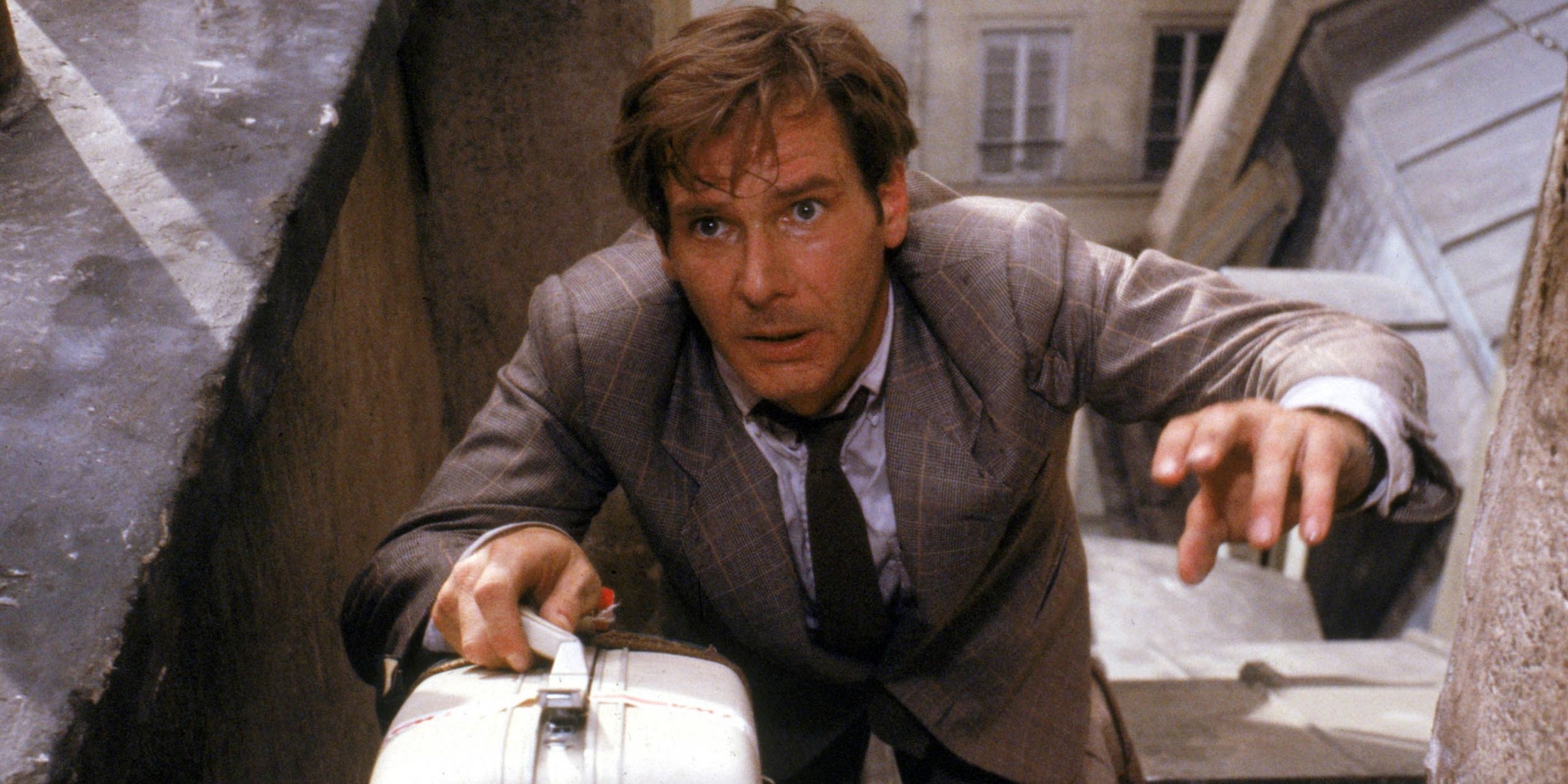
Related
Harrison Ford may be most known for characters like Han Solo and Jack Ryan, but one of his most overlooked movies is still one of his best.
In the decades since its release, numerous writers and directors have credited Tarantino’s juggernaut success with helping smaller, independent movies get investment. Naturally, not all of these movies were a success, but that only ensured the decade had its share of cult classics, films that found a small but passionate fan base years after release. While these can range in genre, from Western to science fiction, the relatively small budget needed for a good crime caper meant countless overlooked films in the genre. One of the best of these was a 1997 teen comedy crime story that starred Christopher Walken and future sitcom star Johnny Galecki: Suicide Kings.
Suicide Kings Made Walken A Funny Don Corleone
The Movie Doubles As a Gangster Story And Teen Comedy
|
Director |
IMDb Rating |
Streaming |
|---|---|---|
|
Peter O’Fallon |
6.9/10 |
Fandango At Home and Plex |
Suicide Kings begins when three friends, Brett, Avery, and Max, invite a supposedly retired gangster turned honest businessperson, Charlie Barrett, for a drink. After getting to know one another, the boys trick Charlie into getting into their car, where they drug him. When he wakes up, he finds himself tied to a chair, and the boys’ fourth friend, a med student named T.K., checking his vital signs. The boys explain that their friend Jennifer, Avery’s sister and Max’s girlfriend, has been kidnapped, and they plan to force Charlie to use his contacts to help them get her back. Initially defiant, the gangster soon changes his mind when his kidnappers reveal that, while he was unconscious, they cut off one of his fingers, just as Jennifer’s own captors did to her. If he refuses, they plan to do to him whatever is done to the girl.
As Charlie starts to reach out to his associates, things take a turn when the boys’ friend, Ira (Johnny Galecki), stumbles in, as they used his father’s house to hold the gangster. Quickly recognizing him, Ira’s first instinct is to try and create distance between them, insisting to Charlie — whose real name is Carlo Bartolucci — that he did not know about the scheme. Despite his erratic, panicked response, Ira plays along with the charade when a security guard comes by the house, allowing the boys to get Bartolucci out of sight in an almost Weekend At Bernie’s-style scene. As the gangster’s enforcer, Lono, plays detective in his search for his boss, tensions flare in the house as Carlo plays the boys off against one another. Suspecting at least one of them is lying to the rest of the group, he sows doubt between them, forcing Avery and Max to confess to staging the whole thing, and that the kidnappers they hired turned on them.
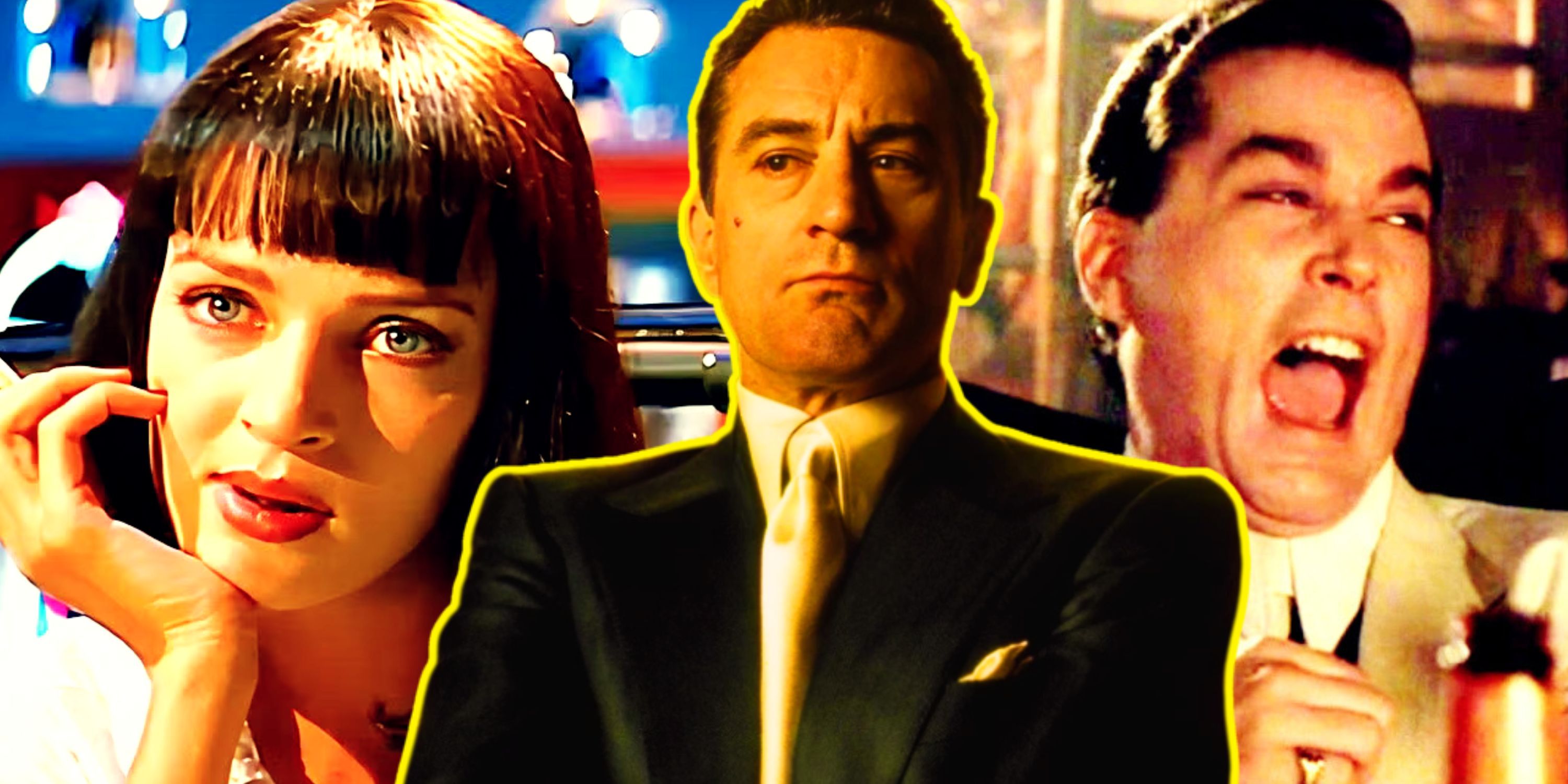
Related
10 Greatest All-Star Gangster Movies of All Time
Gangster movies are full of big attitudes and bigger crimes and movies like Casino and Goodfellas are some of the best in the genre.
Despite the betrayal within the group, they still come together, with Charlie’s help, to pay off the kidnappers to get Jennifer back. When Lono finally tracks them down and arrives at the house, he frees his boss, shoots Brett in the leg, and leaves. In a decidedly 90s-themed twist, it’s revealed that Max and Jennifer actually staged the whole thing, playing their friends and Charlie alike for fools. In retribution, the crime boss and Lono track the now wealthy couple down, allowing Bartolucci to take his revenge, despite being impressed with the scheme.
Johnny Galecki Has Come A Long Way
From Supporting Roles To Sitcom Star
|
The Big Bang Theory |
IMDb Rating |
Streaming |
|---|---|---|
|
2007-2019 |
8.1/10 |
Max |
In the 1990s, Johnny Galecki was largely known for his smaller roles in films like I Know What You Did Last Summer and a recurring role on Roseanne. It wouldn’t be until playing the role of Leonard Hofstadter in The Big Bang Theory in 2007 that his star truly began to climb, turning him into a household name for modern sitcom stars. Alongside actors Jim Parsons, Kaley Cuoco, Kunal Nayyar, and Simon Helberg, Chuck Lorre’s show made stars out of most of its cast, particularly Cuoco and Parsons. From start to finish, it was Leonard’s pursuit and love of Penny that kept audiences interested for a full twelve years.
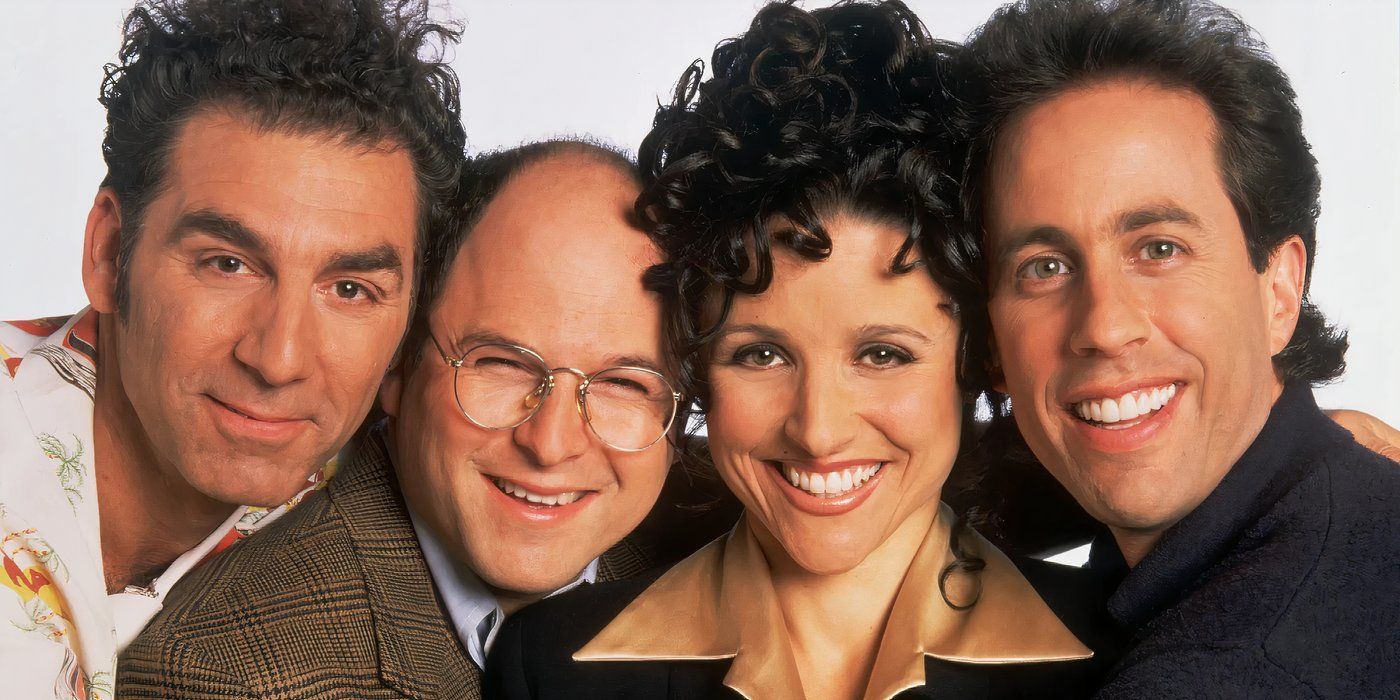
Related
27 Years Later, I Still Can’t Believe Seinfeld Pulled Off This 180-Episode Lie
Despite being called a show about nothing, Seinfeld was really about everything and here’s the evidence to prove it.
While the 2000s saw a lot of fresh sitcoms come and go, few defined the decade as well as The Big Bang Theory, which blended the rise of nerd culture with the classic sitcom “will they/won’t they” formula. Taking after Friends, Seinfeld, and How I Met Your Mother, the series effectively became a couples sitcom for people who enjoyed pop culture, with Galecki playing the relatable but awkward Leonard, the de facto main character of the series. With his success in the series, it’s easy to forget that some of his best roles were supporting characters in films like Christmas Vacation and Suicide Kings. In the latter, seeing his character play off Walken is perhaps the funniest dynamic in the film, as a young man kissing up to a gangster in the hopes he’ll take mercy on him.
Suicide Kings Deserves More Recognition
The Movie Remains Obscure As It Gets
In a decade packed full of low-budget films, the limited setting of movies like The Big Kahuna, Glengarry Glen Ross, and Suicide Kings works to their advantage. After all, their stories almost entirely revolve around character interactions between a small cast, not big action set pieces or chase sequences. In having Walken’s mob boss locked up in a house in the middle of nowhere with five dumb kids, the film found its appeal as a bumbling kidnapping tale. By the end, it’s hard not to love almost every character the audience has sat with for an hour and a half, with even Denis Leary’s Lono earning the respect of viewers.
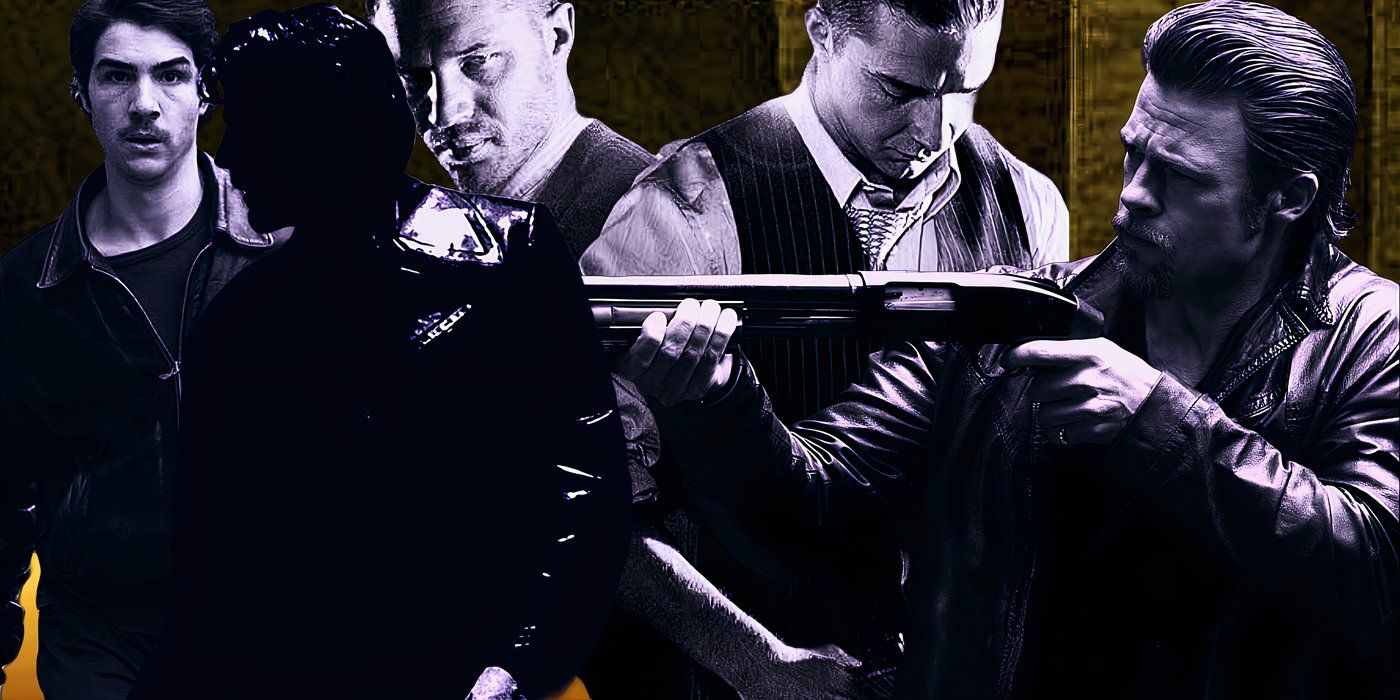
Related
15 Underrated Gangster Movies That Are Flawless From Beginning to End
There are plenty of underrated gangster films that are just as good as many of the iconic staples in the genre.
Written by Josh McKinney, Gina Goldman, and Wayne Allan Rice, Suicide Kings represents the best of the low-budget, overlooked indie black comedies of the ’90s. While films like Fargo, The Big Lebowski, and Grosse Pointe Blank are fairly well known, the subdued tone, limited setting, and lesser-known cast of O’Fallon’s film doomed it to obscurity. However, through Walken embodying a satirized Don Corleone-type gangster cast in an almost Weekend At Bernie’s style farce, Suicide Kings stands out as one of the best dark comedies of the 1990s.
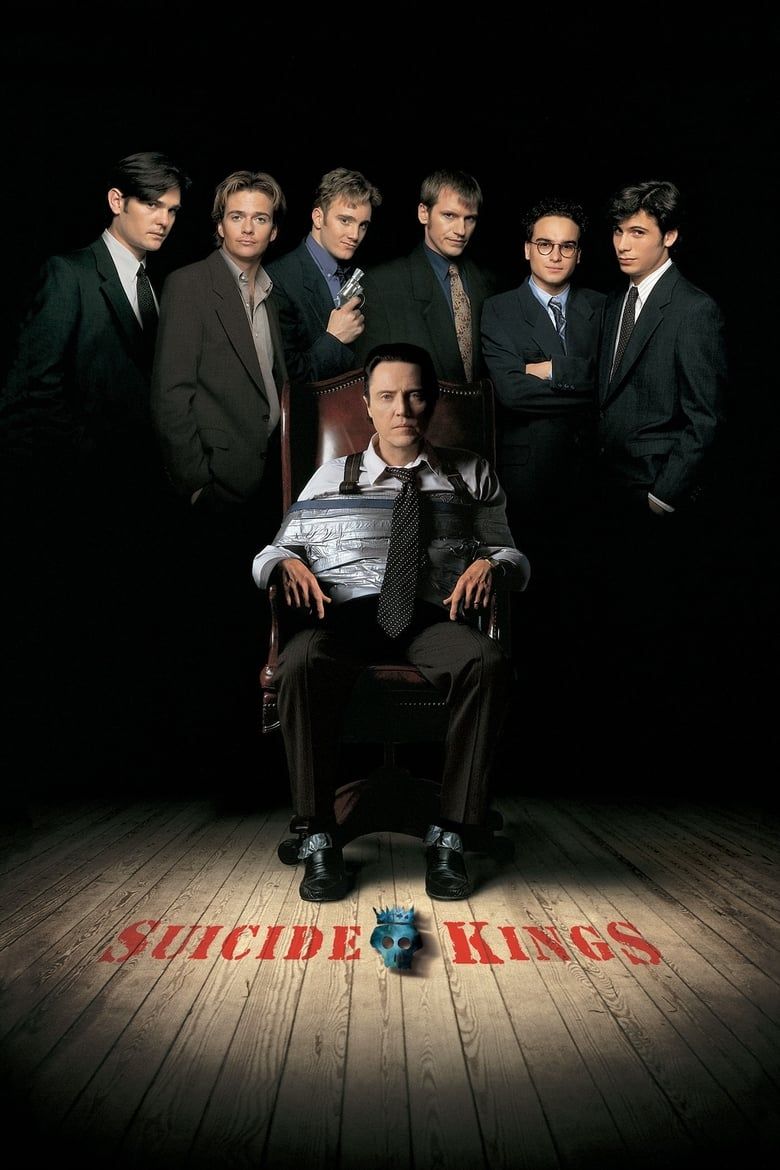
- Release Date
-
September 6, 1997
- Runtime
-
106 minutes
- Director
-
Peter O’Fallon
- Writers
-
Gina Goldman, Josh McKinney

